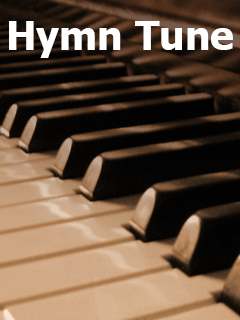- |
User Links
RUSTINGTON

RUSTINGTON
Composer: C. Hubert H. Parry (1897)Published in 87 hymnals
Printable scores: PDF, MusicXML
Audio files: MIDI, Recording
Composer: C. Hubert H. Parry
 Charles Hubert Hastings Parry KnBch/Brnt BMus United Kingdom 1848-1918. Born at Richmond Hill, Bournemouth, England, son of a wealthy director of the East India Company (also a painter, piano and horn musician, and art collector). His mother died of consumption shortly after his birth. His father remarried when he was three, and his stepmother favored her own children over her stepchildren, so he and two siblings were sometimes left out. He attended a preparatory school in Malvern, then at Twyford in Hampshire. He studied music from 1856-58 and became a pianist and composer. His musical interest was encouraged by the headmaster and by two organists. He gained an enduring love for Bach’s music from S S Wesley and took piano and harm… Go to person page >
Charles Hubert Hastings Parry KnBch/Brnt BMus United Kingdom 1848-1918. Born at Richmond Hill, Bournemouth, England, son of a wealthy director of the East India Company (also a painter, piano and horn musician, and art collector). His mother died of consumption shortly after his birth. His father remarried when he was three, and his stepmother favored her own children over her stepchildren, so he and two siblings were sometimes left out. He attended a preparatory school in Malvern, then at Twyford in Hampshire. He studied music from 1856-58 and became a pianist and composer. His musical interest was encouraged by the headmaster and by two organists. He gained an enduring love for Bach’s music from S S Wesley and took piano and harm… Go to person page >Tune Information
| Title: | RUSTINGTON |
| Composer: | C. Hubert H. Parry (1897) |
| Place Of Origin: | England |
| Meter: | 8.7.8.7 D |
| Incipit: | 11432 17511 65453 |
| Key: | F Major |
| Copyright: | Public Domain |
Alternative Tunes
Notes
C. Hubert H. Parry's (PHH 145) RUSTINGTON was first published in the Westminster Abbey Hymn Book (1897) as a setting for Benjamin Webb's "Praise the Rock of Our Salvation." The tune is named for the village in Sussex, England, where Parry lived for some years and where he died.
This is such a distinguished melody that it is probably best to sing all the stanzas in unison, although confident choirs will want to sing the harmony of the middle stanzas. Organists, use bright mixtures. The tune AUSTRIA is most commonly associated with this text, as it was in earlier editions of the Psalter Hymnal. In 1985, however, the synod of the Christian Reformed Church rejected the use of AUSTRIA in its hymnal because Dutch immigrants and Jewish Christians associate that tune with its use by Nazis during World War II.
--Psalter Hymnal Handbook, 1988
Timeline
Arrangements
Harmonizations, Introductions, Descants, Intonations
|
Organ Solo
|
Piano Solo
|
Piano and Organ Duet
|
Voices: Organ, Brass, and Voices
|
Media
The Cyber Hymnal #5990
Text: See, the Conqueror Mounts in TriumphPsalter Hymnal (Gray) #506
Text: Glorious Things of You Are SpokenPsalter Hymnal (Gray) #532
Text: We Have Told the Blessed TidingsWorship and Rejoice #104
Text: Hidden Christ, Alive for EverWorship and Rejoice #572
Text: God, Whose Giving Knows No EndingWorship and Rejoice #622
Text: When Will People Cease Their Fighting?Worship and Rejoice #641
Text: For the Music of Creation- MIDI file from Christian Classics Ethereal Hymnary #1004
- MIDI file from The Cyber Hymnal #5990
- Audio recording from Evangelical Lutheran Worship #678
- Audio recording from Glory to God: the Presbyterian Hymnal #34
- Audio recording from Glory to God: the Presbyterian Hymnal #484
- MIDI file from Psalter Hymnal (Gray) #506
- MIDI file from Psalter Hymnal (Gray) #506
- MIDI file from Psalter Hymnal (Gray) #532
- MIDI file from Psalter Hymnal (Gray) #532
- Audio recording from Small Church Music #910
- Audio recording from Small Church Music #910
- Audio recording from Small Church Music #911
- Audio recording from Small Church Music #3552
- Audio recording from Small Church Music #3600
- MIDI file from Worship and Rejoice #3
- MIDI file from Worship and Rejoice #104
- MIDI file from Worship and Rejoice #572
- MIDI file from Worship and Rejoice #622
- MIDI file from Worship and Rejoice #641


 My Starred Hymns
My Starred Hymns






